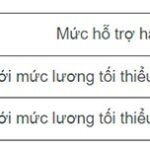Understanding the regulations related to civil execution procedures according to current Vietnamese law is essential. Let’s explore the specific provisions together!
1 Related Legal Provisions on Civil Execution Procedures
 The general process for civil execution procedures is specified in the Law on Civil Execution 2008.
The general process for civil execution procedures is specified in the Law on Civil Execution 2008.
The comprehensive regulations regarding civil execution procedures are outlined in Chapter III of the Law on Civil Execution 2008. Notable provisions include:
Article 30. Statute of Limitations for Execution Request
1. Within five years from the date of entry into force of the judgment or decision, the executing party or the executed party has the right to request the competent civil execution agency to issue an execution decision.
If the deadline for fulfilling the obligation is specified in the judgment or decision, the five-year period shall be calculated from the due date of the obligation.
For judgments or decisions to be executed periodically, the five-year period shall apply to each period, calculated from the due date of the obligation.
2. In cases of execution suspension or postponement as prescribed by this Law, the suspension or postponement period shall not be counted in the statute of limitations for the execution request, unless the executing party agrees to the postponement requested by the executed party.
3. If the requesting party can prove that due to objective obstacles or force majeure, they could not request execution within the prescribed time limit, the period of such objective obstacles or force majeure shall not be counted in the statute of limitations for the execution request.
Article 31. Request for Execution
1. The request for execution shall include the following main contents:
a) Name, address of the requesting party;
b) Name of the civil execution agency where the request is made;
c) Name, address of the executing party and the executed party;
d) Content of the execution request;
e) Information about the property or conditions of execution of the executed party.
2. The requesting party must clearly state the date and sign or fingerprint the request. In the case of a legal entity, the request must be signed by its legal representative and bear the entity’s seal.
If the requesting party directly expresses the request orally to the civil execution agency, a record shall be made, clearly stating the contents specified in Clause 1 of this Article, with the signature or fingerprint of the requesting party and the signature of the recording person. The record shall be equivalent to the request for execution.
The request for execution must be accompanied by the judgment or decision to be executed and other relevant documents, if any.
3. The requesting party has the right to request the civil execution agency to apply measures to ensure the execution as prescribed in Article 66 of this Law.
Article 32. Procedure for Submitting the Request for Execution
1. The requesting party may submit the request for execution by themselves or authorize another person to do so in one of the following forms:
a) Submit the request or express it directly at the civil execution agency;
b) Send the request by post.
2. The date of sending the request for execution shall be counted from the date on which the requesting party submits the request or expresses it directly to the civil execution agency or the date of the postal mark of the sending postal agency.
Article 33. Receipt of the Request for Execution
1. Upon receipt of the request for execution, the civil execution agency shall examine the contents of the request and the accompanying documents, record it in the register of receipt of requests for execution, and issue a receipt to the submitting party.
2. The register of receipt of requests for execution must fully reflect the following contents:
a) Date of receipt of the request;
b) Number, date, month, and year of the issuance of the judgment or decision; name of the agency issuing the judgment or decision;
c) Name, address of the requesting party;
d) Name, address of the executed party and the executing party;
e) Content of the execution request;
f) Other accompanying documents.
Article 35. Competence for Execution
The competence for execution is vested in the following agencies:
1. District-level civil execution agency.
2. Provincial-level civil execution agency.
3. Military-zone-level civil execution agency.
Article 36. Decision on Execution
1. The head of the civil execution agency shall proactively issue a decision on execution regarding the following parts of the judgment or decision:
a) Fine, recovery of money or illegally earned property, and court fees;
b) Return of money or property to the parties;
c) Confiscation of money or property for state budget or destruction of exhibits and property;
d) Revocation of land use rights and other property subject to state budget contribution;
e) Decision on the application of temporary emergency measures.
Within five working days from the date of receipt of the judgment or decision, the head of the civil execution agency must issue a decision on execution.
Within 24 hours from the receipt of the decision on the application of temporary emergency measures from the court or directly from the parties, the head of the civil execution agency must issue a decision on execution and assign a judicial executor to organize the execution.
2. Except for the cases specified in Clause 1 of this Article, the head of the civil execution agency shall issue a decision on execution only upon receipt of a request for execution.
The time limit for issuing a decision on execution upon request is five working days from the date of receipt of the request for execution.
3. Within two working days from the date of issuance of the decision on execution, the head of the civil execution agency must assign a judicial executor to organize the execution of that decision.
2 Steps for Civil Execution
 Not everyone is familiar with the steps for civil execution.
Not everyone is familiar with the steps for civil execution.
Step 1: The court, the Council for Handling Competition Cases, or the Commercial Arbitration must explain to the parties their right to request civil execution as prescribed in Article 26, Chapter III of the Law on Civil Execution 2008.
Step 2: The aforementioned authorities, after issuing a judgment or decision, must provide a copy of the judgment or decision and notify the parties as prescribed in Article 39, Chapter III of the Law on Civil Execution 2008.
Step 3: Depending on the type of judgment or decision, the issuing authority must transfer it to the competent civil execution agency immediately after making the decision, as prescribed in Article 38, Chapter III of the Law on Civil Execution 2008.
Step 4: The civil execution agency shall issue a decision on execution as prescribed in Article 36, Chapter III of the Law on Civil Execution 2008.
Step 5: The civil execution agency shall verify the conditions for execution as prescribed in Article 44, Chapter III of the Law on Civil Execution 2008.
Step 6: If necessary, the civil execution agency shall enforce the execution by coercion as prescribed in Article 46, Chapter III of the Law on Civil Execution 2008.
Step 7: The civil execution agency shall make payments related to the execution as prescribed in Article 47, Chapter III of the Law on Civil Execution 2008.
Step 8: The civil execution shall be concluded as prescribed in Article 52, Chapter III of the Law on Civil Execution 2008.
Through this article, we hope you have gained a clear understanding of the relevant provisions regarding civil execution procedures. We wish you success in preparing the necessary documents and complying with the legal requirements.



































